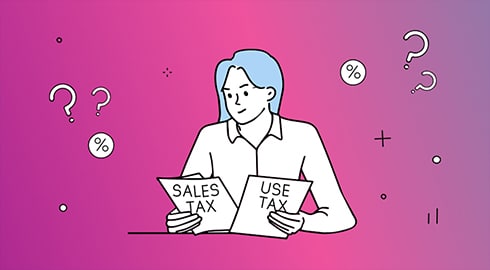Sales tax compliance is a critical aspect of business operations … even when you’re a tax-exempt company.
While tax-exempt status does free businesses like resellers and non-profit organizations from the onus of paying sales tax, it does not grant them immunity from the complexities and potential exposures inherent in the ever-evolving sales tax landscape.
So let’s shed some light on the lesser-known areas of sales tax that tax-exempt companies may have overlooked in their journey to ongoing compliance.
The Myth of Total Exemption
Contrary to popular belief, tax-exempt companies and resellers are not immune to sales tax obligations. This common misconception can lead to complacency and a lack of awareness regarding the specific instances where sales tax obligations need to be met to ensure compliance.
Tax-exempt companies must understand that when they engage in transactions across state lines, they enter a complex web of tax regulations. Each state has its own set of rules, exemptions, and tax rates, making compliance a challenging endeavor.
Additionally, it is important to note that maintaining tax-exempt status does not absolve companies from meeting reporting and filing requirements. Even though you’re not required to remit sales tax, you still need to prove your status by providing an exemption certificate for the specific state you’re requesting exemption in.
It is crucial for tax-exempt companies and resellers to dispel the myth of total exemption and recognize the need for continued diligence in sales tax compliance. Understanding the specific scenarios where sales tax obligations persist is the first step in ensuring compliance and avoiding potential exposure.
Unraveling the Multi-State Sales Tax Maze
For tax-exempt companies and resellers, operating across multiple jurisdictions can quickly become a labyrinth of sales tax complexities. Each state has its own unique set of rules, thresholds, and exemptions, creating a convoluted landscape that demands careful navigation.
The greatest burden arises when it’s time to prove your exemption. Some states, such as California, Colorado, and Connecticut, offer blanket exemption certificates for multiple purchases. But in most states, separate exemption certificates and resale certificates need to be issued for specific types of transactions.
This means you need to file the right documentation when requesting exemption, otherwise you may end up paying sales tax or leave the seller exposed if they neglected to check the certificate’s validity. While this may not impact you directly in the short term, it may cripple a business partner or damage your reputation.
To navigate this multi-state maze successfully, tax-exempt companies and resellers need a comprehensive understanding of each state’s sales tax laws, thresholds, and exemption requirements.
State-Specific Exemptions and Sales Tax Nuances
While tax-exempt companies may enjoy a general exemption from sales tax, it is crucial to recognize that each state has its own set of unique exemptions and nuances. Understanding and adhering to these state-specific regulations is essential to maintain compliance.
States often offer exemptions for specific industries, types of transactions, or products. Take these three scenarios as example of the wide berth between different states’ approaches:
- California exempts nonprofit organizations from sales tax on fundraising activities but does not offer them blanket exemption.
- Texas exempts medical equipment, including orthopedic and prosthetic devices, from sales tax, while Alabama taxes durable medical equipment even if it is prescribed by a medical professional.
- While Kansas only offers tax exemption of farming machinery and equipment, Oklahoma exempts a variety of agricultural supplies from sales tax, including feed, fertilizer, pharmaceuticals, biologicals, seeds, and plants.
Keeping track of these state-specific exemptions is vital if you want to benefit fully from your exempt status. But so many complexities to unravel, how can you keep your head above it all? With the assistance of an automated helping hand.
Automated Sales Tax Software: The Compliance Lifesaver
Navigating the complex landscape of sales tax compliance for tax-exempt companies requires a comprehensive solution, and that’s where Complyt’s automated sales tax software comes in.
Sales tax automation software has become a game-changer for tax-exempt businesses, providing you with the necessary support to stay compliant in a constantly evolving sales tax environment and the assurance that you’re benefiting from the full scope of your exempt status in each state.
Never again will you need to worry about whether you’re exempt or if you’ve applied for the correct exemption certificate for each purchase.
Get in touch with our sales team and find out how we can help you embrace the full power of your exemption.









